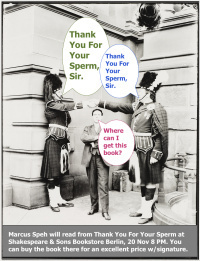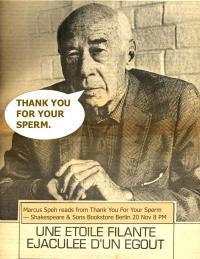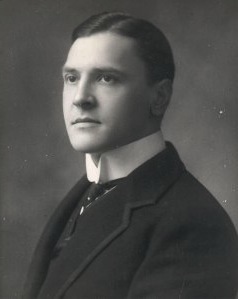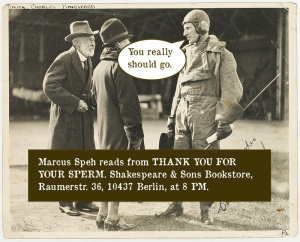Marcus Speh's Blog, page 2
April 19, 2014
Easter Essence
At Easter the common folks bring their eggs to the Lord. The lidless leveret lies in the grave, its open eyes directed upwards in death. The egg goes into the Easter bread: it is blamed on the lagomorph. Mixed images: resurrection and spawning, the hare as chicken, the sidestepping and egg painting, the instinct to flee before the crucifixion and after, Saturday’s search for the buried, the Hidden, and above all the sweetness rising from the sadness like a naked fog and dissolving on the tongue when the chocolate egg melts. Stubbornly we move to safety from the power of the old pictures. Rites and processions take place in backyards: their participants are like ghosts. Sung incantations that connect heaven and earth vanish as soon as the first warmth of spring arrives. What is the essence? What is the truth of our time? What forms the center of the egg whose center is an egg?
[German original: Versuch über Ostern; en français: Essence de Pâques]

March 15, 2014
Negotiating Babel
…The Lord came down to see the city and the tower the people were building. The Lord said, “If as one people speaking the same language they have begun to do this, then nothing they plan to do will be impossible for them. Come, let us go down and confuse their language so they will not understand each other.” —Book of Genesis 11,5-7
If the bible says the truth, then there’s something potentially dangerous about speaking only one language. What could it be? “Wouldn’t It Be Loverly“[1] if our tongues were no longer split in different directions?
In Douglas Adams’ Hitchhiker’s Guide to the Galaxy, the Babel fish, a telepathic universal translator, is described as “a final and clinching proof of the non-existence of God.“[2] Though the argument is about as deep as the rest of the book, it suggests that language may be linked to a “Deep Magic” as C.S. Lewis might have said[3]. What is the nature of this magic? Can it be made or unmade? Can it be learnt or must it be inherited?
Language clearly is more than sound waves, just as mastering language is more than learning patterns, just as speaking is more than being a parrot. Language can set the tone for our dialogue with the divine: in Franz Werfel’s novel Song of Bernadette, the apparition of the Virgin Mary speaks not in any language, but in Occitan[4], the vernacular spoken by the poor people of Lourdes. But which of the many tongues spoken is shared by God, if any?
I’ve been talking and writing about bilingual writing for a while now – on my blog, where I rather flippantly called myself a “linguistic cross-dresser” once[5], and in interviews[6]. In fact, as soon as people find out that I write both in English and in German, they are likely to ask: why? Why don’t you just stick to your mother tongue?
In the past I stayed away from the deeper aspects of this question, the aspects that concern the nature of language. Instead, I responded on the level of pattern-making, of language as a plaything, as something that is manipulated, bent into multiple shapes – a craftsman’s reply, fair enough given my own ongoing struggle with two tongues on the paper.
But I don’t feel or think that this response is sufficient any longer. I say this at the end of many months of trying hard to break up my own work habits, of identifying the pieces of my mind puzzle in order to fully control my bilinguality. I did this out of hubris and out of hunger: the hubris came from several years of (more or less) successfully going back and forth between English and German; the hunger came from my desire to be able to produce fiction for a market, be it English or German. I wanted to get rid of my inhibitions against writing in German or English depending on the topic, the genre and the form. And a German literary agent had told me that she needed something written in German and not in English. So I applied myself to the task using all the analytical tools that I know and my considerable discipline of writing fast and in bulk (helped by my relatively new habit of dictating my text instead of typing or writing them by hand).
Did I succeed? Did I gain the independence of language in writing I’d sought? The answer is no. But I don’t think that I failed myself in the process. Because I am beginning to understand what I’ve hinted at above: that language is not just some stuff to sculpt with; that its spirit had better not be probed with scientific tweezers; that EVERYONE “speaking the same language” might not an apparent paradise of communication, but likely hell on earth.
Nowhere is the faith in a common tongue as strong as on the Internet. Since I’ve been around, at least since the early 1990s, the homogenization of language has continued: not surprisingly, since the medium isn’t just a reflection of the culture but also creates its own culture, one which includes a language. This language is different from English, or from German for that matter; it is becoming the biblical Babel’s idiom, the babble of billions who believe that “nothing they plan to do will be impossible for them“. I’m no longer one of them. I’ve weighed my linguistic limits and found them wanting. Now, I once again believe in language as a mystery, something that comes to you not as clay to be moulded, but as a marvel. Does this position constrain me? It surely does, but with it comes a spiritual depth that I would not want to miss.
My new position touches not only upon the inner but also upon the outer world: if language is a mystery instead of a tool, then writing is a mystical experience instead of a job, and a book is a miracle instead of a product. For me, this is more than a sea change: it’s like the two-fold realization that there is (1) an entire world behind the world I knew, and (2) that I cannot ignore that new world.
When you live in a room with curtains, it makes all the difference whether you believe the curtains cover a window or a wall. If they cover a window, you must draw them if you want to see. If they cover a wall, drawing them or not drawing them becomes a matter of degree rather than destiny.
On the net, language sensibility seems limited to Karl Marx’ view as a “practical, real consciousness that exists for other men as well, and only therefore does it also exist for me.» That this consciousness is near-global is again a matter of degree, it does not fulfill the promise of language as a channel to another dimension.
I’m still somewhat excited about globalization but I’m also increasingly baffled by its paradoxes, like: the paranoia of politically correctness vs. the delightful diversity of the heart; standardized communication in the name of marketing and money-making vs. the costly human desire to muddle things up creatively and clumsily.
To me, the world, viewed from the keyboard, looks rather increasingly like Edith Wharton’s view of the libretto in The Age Of Innocence: »An unalterable and unquestioned law of the musical world required that the German text of French operas sung by Swedish artists should be translated into Italian for the clearer understanding of English-speaking audiences.« What if the global mind has gloriously woken up from its slumber only to enter an electronic nightmare?
I have not said much about the origin of my change of heart. It’s very personal and lies beyond the scope of this essay. Only this much: I took up singing. Singing is a form of prayer — it hardly matters if you have a religion or a God. It takes one outside, it draws the curtains without one’s conscious approval.
As a writer, I’ve always believed in hard, continuous work: writing, writing, writing. I imported this practice from the rest of my life since I felt I had done well. I always knew that I was on a long journey. Its beginning, a few years ago, was filled with wonderful encounters on and off the page, on and off the screen. And at the end of this period, I even published a book which was bliss and a blessing both.
Now, I experience myself much more as traveling within. I am much less driven and I write little – not because I feel blocked but because I lack the ambition to push through at any price, no matter where to. I’m inspired by reading how Cormac McCarthy works[7]: »I get up and have a cup of coffee and wander around and read a little bit, sit down and type a few words and look out the window.«
I used to obsess about time — the time during the day, in the week or during the holidays available for writing; the time left in my life to write; the time stolen from me by myself, by others etc. Now, rather than obsess about time, I wait.
I used to torture myself with goals: I always had one, and I didn’t believe anything could be achieved without a clear goal. I would enforce striving to reach the goal against my health and against my own conscience and, again, against time. Now, rather than race towards an invisible finishing line, I have faith.
The image of my own process has altered quite dramatically in the past six months: I feel as if I’m drifting around the edges of a giant ice shelf. I’m hoping to dislodge a floe, I’m waiting for an opening in the ice, I’m trying to be ready for it, but that is all. Writing has become an act of grace rather than of bricklaying. I have abandoned the Tower but I’ll never be sorry that I was tempted by its splendour.
[Published in: Awkword Paper Cut, February 2014. Thanks to eds. Michelle Elvy and Michael Dickes.]

January 14, 2014
Writing as a faint form of memory

Writing as a faint form of memory
The grateful churchgoer knows:
the inside is larger than the outside.
Familiar wrinkles bring back new fears.
Windfalls of the poisoned tree spoil.
Pale claims drift and shiver,
create space for the hues of joy.
[German version "Das Schreiben als blasse Form der Erinnerung"]

November 21, 2013
Fierce Flashing
As an unperfect actor on the stage
Who with his fear is put besides his part,
Or some fierce thing replete with too much rage,
Whose strength’s abundance weakens his own heart.
—William Shakespeare (from: Sonnet 23)
It’s been a while since I read publicly from my work. Two years to be exact — my last appearances were in November 2011 when I read the Berlin-based short story “Berlin Pastoral” to a London audience, and in Berlin in July 2012 after another story had been shortlisted in a competition. But until last night I had never been on stage alone, without other writers preceding or following my act. It was not entirely “gemütlich”: I felt awkward and nervous all day and I only figured out why shortly before the event itself. The reading took place at a lovely, cozy English bookstore, Shakespeare and Sons, located in Berlin’s trendy Prenzlauer Berg neighborhood, called “LSD Kiez” by the locals (nothing to do with drugs, just a pun on street names), a stone’s throw away from my own apartment. Though the Internet made it look like a global worldwide launch, it was actually a very neighborly event — underlined by the living room quality of the bookshop. Soft light, wooden floors, comfortable old recliners and a sofa, the smell of home baked bagels, coffee and tea, sugar dusted chocolate muffins against the November chill and the rain whipping against the window panes… Quite the opposite of the House of Usher or the Wembley Arena (two other venues that I could imagine would go well with the titular brazenness of “Thank You For Your Sperm“). The House of Usher has fallen of course, and Germans are not welcome at Wembley for the time being (it’s a football thing). The awkwardness: personal stuff in the book, personally read by me in what felt like a personal space…too much intimacy for comfort. Reviews (like this one in HTMLGIANT) have pointed out that the autobiographical quality of many of the flashes in TYFYS is palpable. Hence, I opted for the selection of stories less personal, like “Electric Eyes”, “Men on Mars”(from the more pleasant stories), and “The Sodomized Dictator” and “Before the Bloodbath” (from the less pleasant ones). To not end on too sombre a note, I finished up with “Arachnophobia”, an unpublished piece. The section of the book titled “The Serious Writer” garnered the greatest interest — but when I responded by reading “The Serious Writer And His Hamster”, the mood went way down (it’s a sad & true story, this one) so that I had to follow up and now really close with “Freedom Ties” (originally published in Berlin’s English LitMag SAND) — one of my favorite tiny pieces, perhaps only because it contains Cary Grant and Audrey Hepburn. Some of these actors that I identify with a black and white age of past glory, etiquette and civilization, simply spread good vibes even when only mentioned by name.

Audience during the reading of “Thank You For Your Sperm”
The audience was generous with applause (in fact once they applauded after the first piece they realized that it would be rude not to applaud after every subsequent piece so that they were trapped in their own magnanimity). Their questions delighted me also, because they caught me by surprise (despite many interviews that somehow were forgotten all at once): who are my influences? [Mentioned: Baudelaire, Kafka, Kierkegaard, Borges. Though currently I'm reading Raymond Chandler, Leon De Winter, Norman Mailer, Robert Harris...hard-boiled he-men] Did you do animation for these flashes? [No, I thought about it, but no time and no real skill but I think it's a wonderful idea! Awkword Paper Cut has recently made a video for one of my flashes, "Reading for Writers".] What’s my next publication? [Gizella, a novel in flashes, from Folded Word Press; writing a mystery.] I had somewhat agonized before about including flashes from “Gizella”. I decided against it and the reason came to me only after the question had been asked: the novel is not finished and its flashes are quite fragile and more poetic than my other work. This may be because the whole book is written from a female point of view, or perhaps it’s because most of those flashes have not been published online: online publishing, via literary magazines or blogs, can have a workshop effect on one’s writing. It’s almost as if the readers out there, with whom, on average, there’s more communication than, say, with the people who bought a print copy of TYFYS, help the writer finish the text. Sometimes quite literally (by commenting), but more often because when I put something online, I tend to polish and edit the heck out of it. This is simply something that the flashes from the new book have not experienced. “Whose strength’s abundance weakens his own heart“: love in abundance doesn’t mean certainty of closure…
I’m grateful for this evening, for having had such a wonderful audience and such a warm and welcoming venue to read in. Perhaps if I had lived in the US (or even in the UK) I’d have done a lot more of these readings — as it stands, this may well have been the first and the last. Even more reason to cherish the opportunity!
Pictures coming soon! [P. and U.G. were nice enough to shoot some pics and promised to send them] In the meantime, feast your eye on the gallery of postcards that were posted all around town prior to the event!

Assistant for a 19th-century knife-throwing sideshow act.

Modified from photo by A. Sander, SS Captain (1937)

Modified photo by Ted Hood, Two giant “Beefeaters” in London (1953)

Modified cover of Temps Livres November 1990, showing Henry Miller

Red Army Support.

Reading the scriptures.

October 5, 2013
55 superheroes
(for Carlye)
The man without a stomach who digests with his skin. The five Asian women who, as individuals, have lost all their senses, but when they hold hands, they can see, smell, hear, taste, feel. The fat American woman who can throw herself under a Berlin tram without suffering any damages (except when she gets up afterwards she swears like a trooper). The African couple who roar like a lion and his lioness. The Siberian mouth harpist who plays beautifully without harp. The ten single-toed men from Atlanta, Georgia, who are married to ten women from Oracle, Ohio, who have no feet at all. All mormons, but especially four of them, a baby girl, a teenage boy, a grown-up woman and an old man, who would turn a salt lake into a blooming meadow if God commanded them to. Six Albanian peasants who speak with the lost tongues of Atlantis. A woman from California in Berlin, who can bring her avatars to life: when she switches off her computers, the avatars become silvery fish and are released into the river from where, after a long journey, they reach the open sea. Fifteen fishing Polish women who can walk on the water. The boy from Singapore whose sweat turns into perfume. The Australian man with calluses at his feet that are one thousand years old. A tree in Chile who once was a cowboy from Texas. A Roman who can bleed from his feet when he prays with fervour. Three Irish truckers whose hands turn grown women into virgins. A prostitute in Lima, Peru, and another one in Greenland who know the future of their clients. The immortal man who wanders the earth since six thousand years as an Egyptian, a Jew, a Greek philosopher, a Catholic priest, and, lately, a little tired from all the walking, a New York bartender with a great sense of humour.

August 10, 2013
holi होली day

Photo: Marcus Speh by Bruce Spear, August 2013; modified using Brushes on an iPad.
Art does not imitate Life.
Artists join monasteries
recoil from false gods,
focus again on the simple
potato soup, on people
made of reeds, on
hand-colored hair balls.
Make rank love in
chilled conservatories.
Holiday furrows.

June 28, 2013
Bogle’s Bricolage
At Fictionaut, writer and inveterate genre/form-maker Ann Bogle started a discussion, as she does, on marginalia and ephemera, which somehow matches other discussions I’ve had over the past few days with different friends from different countries, in different places, on and off the net.
Over in the Alt Litgossip corner of the Web I see artists and writers continually whip up a storm in a small glass using a tiny box of tools. A lot of their work strikes me as “ephemeral” in the sense of self-conscious bricolage in which Ann uses the term to describe something artistic rather than accidental. With her history and literati glitz glistering throughout the pieces she adds something else to the mix that makes it even more special and original. I admire the experimental fervor of Ann and others, as in this excerpt from “WπHπAπT 2″, a text that is stupendously modern, bypassing post-modern movement melancholy and leaving it in the dust much like Tao Lin’s “Taipei” bypasses Beckett’s ennui and completes it for 21st century use:
Later I started a movement to define experimental fiction called WπHπAπT, and the two men I invited in an email to join did not reply, and I did not follow up. The blog post I titled WπHπAπT is based on that email and is shielded from view at Ana Verse. It is not a manifesto but asks whether experimental fiction must include territory besides “nonlinear marginalized sex writing,” as described in many reviews online of Biting the Error, reviews that turned out to be perhaps sales-sexy but incomplete in describing the book. WπHπAπT with its pi signs denotes the way the inquiry felt and follows in strategy those inventors in language I estimate highly.
I am very different: when I am experimental, innovative or original it happens rather despite myself; all I ever aspire to do is tell a story in a traditional manner; but how do you walk a straight line when you perceive the horizon itself as bent irretrievably out of shape?
[image error]
“Monk by the sea”, Caspar David Friedrich (1808)
Dialoguing with Ann feels incestuous. She’s like a younger, wilder sister, only older. She incinerates herself on her own altar. She wears white lace lingerie when she writes. In response to my linking to a few ephemeral texts of my own on this blog like this recent Facebook-WordPress-mash-up, she writes after devouring my word-pieces:
Marcus, I read the texts you link in the passage above and find them all to be good as in edible. We need to be careful, lest we repeat ourselves for free. Jonah Lehrer repeated himself for pay.
I’m not so concerned about repeating myself though I’ve been a spitfire against Lehrer myself in this post. Take this very post. The process:
Night time reading & too much coffee leads me to Ann’s discussion
I post a paragraph of my own — mainly links to old content
Ann responds with more detail, more passion, inspires…
a long note in reply, which I edit lightly for Facebook and Google+
which is tweeted as a fragment
deliberation and tweaking turns into this post…
…using largely the infrastructure that I’ve laid out visually elsewhere. One difference to Lehrer’s example is the transparency and the desire to add to my own thought by rewriting while making the process visible for myself and for others. This can get tedious. It must not go on for too long. Twitter is, in many respects, a more able medium for textual mash-ups. Penny Goring does this well. She writes things like:
i dreamt i was walking around greenwich with live white tigers draped around me they were happy to be my accessories
I’ve met Penny in London and she’s not exaggerating. Her waist is a wasteland of weirdness but with her words she can grow hair on your tongue. When I turn to Twitter, I poeticize, which is like downsized, chewed up poetry (like here or here).

Echnaton (Amenhopis IV): way ahead of his time.
I accept the need for imitation and repetition. When I alter my ways it is to avoid perishing of being bored with myself. Social media themselves seem to be built more on repetition and endless sharing of minimally different experiences than on originality and creativity. Post anything too creative or too original, anything too many steps ahead of the curve or the herd or the movement… and you will soon be alone on your blog or on your timeline. This makes a lot of evolutionary sense. It also makes Freudian sense. But that’s possibly a new discussion altogether.
How experimental do you feel today? Whatever you’ve got in mind, bogle it & don’t be goring about it.
Sources: Fictionaut, Marginalia (Ephemera); Ann Bogle’s blog, Ana Verse; “WπHπAπT 2” by Ann Bogle; “Taipei” by Tao Lin — reviewed in the guardian & in the NYT; the real, the raw deal is here: Alt Lit Gossip. Penny Goring has a new book out from Nauseated Drive. And, of course, so do I.

June 5, 2013
Very short fiction summer
Mother literature has four distinct children: the novel, stout, stable, liable to bagginess; the novella, a trimmed bush filled with promise; the short story, well-defined and knowing what it wants; and the poem, dreaming and dreading too much responsibility. Then there are the cousins and the bastard children born throughout millennia of unfettered literary fornication, too many to mention. Among them is one child, small and perfectly formed that goes back centuries, too, but that has lived in the shadows for too long, biding its time until the emergence of the web: its name is flash fiction, and it is ready to shine.
Kierkegaard: Philosophical Parabolist
Flash means maximum control in a minimal space, without the bonds or the freedom of poetic expression. The smallness of the (visible) canvas combined with the potential of the prose brush engenders a state of trance, a temporary loss of balance. The flash writer is constantly compared with his more established kinsfolk, much like a bonsai tree artist who is accused of being a dwarfish version of a landscape gardener. It is this tension that appeals to me about flash: it calls for both a technical and a critical response.Baudelaire: Spleen Sympathizer
I am trying to meet the technical challenges with my own flash fiction, which mostly deals with large canvas themes of an existentialist nature, tempered by absurdism. Over the next months, I will write four fictions, each of them focused on, and inspired by one of four European forerunners of flash fiction: Sören Kierkegaard (1813-1855), Charles Baudelaire (1821-1867), W. Somerset Maugham (1874-1965), and Robert Walser (1878-1956).Walser: Micro Master
Except Walser, who, a confined lunatic, turned into an obsessive master compactor, you might not identify any of these as proper “flash writers”. But the power of Kierkegaard’s philosophy stems also from the strength of his very short parables, strewn across a vast authorship, many contained in his massive “Either/Or” (1843). Baudelaire, the poet of evil long before Stephen King picked up his pen, published the first collection of flash in the form of “Paris Spleen” (1869), properly called “petits poèmes en prose”, and not evil at all. I read Maugham’s short stories long before I realized he had written novels, too (and much else): in “On A Chinese Screen” (1922) he published pure flash, a book of sketches conceived while traveling through China. Of course, there are many other favorite writers known for their mastery of the (very) short form waiting in the wings, but seeing this year really is my last year of flash I wanted to take a look at the very early flash folks, the dead dons, and lastly there must be an end to everything.
Maugham: Word Whisperer
In accompanying short editorial notes I will attempt to build the bridges between these writers and our contemporary practice of flash fiction. By doing this, I hope to strengthen the historical and conceptual foundation of flash fiction. To tune in while you wait, check out voices of contemporary flash writers in “How To Write Flash Fiction” at Awkword Paper Cut, gathered by Michelle Elvy. And if you’ve caught the bug, submit to Flash Mob 2013, the International Flash Fiction Day competition, which also includes a conversation with Flash Mob 2013 host Chris Allen.

May 20, 2013
How to love your own book

Surprise me! This is not a news channel! Photo: Salvador Dali (1904-1989)
As I’m recording1 this blog post I realize that I really, really don’t like using this space to relate news, you know, raw information, subjective or objective, about what’s been happening or what happens right now. I really like to write nonfiction for the same reason and with the same aspiration as when I’m writing fiction: namely to surprise myself. I do not want to know beforehand what I’m going to say or, when I’ve said it, what I’m in for next by way of attention, or inspiration, or desperation. And I believe that this is exactly why you are reading this now. You’d like to be surprised; you’d like to have a thought that you didn’t have before, or a feeling not yet felt or have them with greater, or with less intensity, strength, duration than you’re used to. To find out what’s new you should join platforms that are known for, and to some extent have been optimized towards, sharing of news and daily information, like Facebook, Google+ or Twitter. I regularly look at my own Facebook page to prove to myself that new things are happening to me, too, but when I need confirmation that I’m still thinking bravely and feeling deeply I return to my blog.

Cover of TYFYS
There hasn’t really been a situation in my life as a writer so far that made what I said above necessary to say. However, at the end of April my debut collection of short fiction, “Thank You For Your Sperm“, emerged from the shadows; was born; came into being; was thrust into the eye of the public; survived the hurricane of post-production; surfaced; battled its way into being; released the shackles of “maybe”; could be purchased on the web everywhere; began to attract reviews; had a poem written about it; was featured in photos; wanted to be read; was printed on white acid-free paper; proudly showed its colorful cover to the world; carried on its flaps the supportive voices of writer friends2; was talked about in interviews (yet to appear3); shot up to (by me) unheard off heights on the Amazon bestseller ranking lists in the US, in the UK, and in Germany (where on a particular day in the beautiful month of May it reached position number 130 among the list of English books sold at Amazon.de); was eventually on sale in real bookshops in Berlin4; was autographed by me for a friend who bought my book shortly before a new Berlin writing group came into being (an occasion on which I mentioned the book as being mine, a short speech that I heard myself repeat over the past few weeks in German, French, and English in a multitude of places on and off the grid); all of which is to say in many ways that “Thank You For Your Sperm” was published by MadHat Press, a new small press from Asheville, NC, whose editor-in-chief, Marc Vincenz (his name was jus now transcribed by my dictation program as “marketing sense”!), proved highly responsive throughout the production and the selling of the book and firmly stands by my side in all matters interesting, confusing or necessary to the battle, while the book was mentioned in fellowship applications, casual conversations with colleagues, briefly shown to MBA students who had or hadn’t heard yet that their professor is also a writer; found entrance into a course on the short story taught at present by Joani Reese at Collin College in Plano, Texas; was sent out to reviewers and to family members who read the stories to each other at night; became the target of a great number of sperm- and sex-related jokes (unfairly though not unexpected); was read by me on the morning of its arrival as a physical, printed book; and, perhaps most important of all, was loved by me as much as if it had been someone else’s book, which is, given my lassitude and reluctance to ever read anybody else’s prose (while they’re alive anyway), almost the greatest compliment I can pay myself. (I love making lists, by the way.)

Thank you for your sperm! (Award ceremony in Stockholm, Sweden)
It’s not hard to see what’s next for this book. It’s out there now swimming among other fish in the sea, enjoying, I think, its new life, as I am enjoying fatherhood all over again, and with all the positive energy, hope and goodwill surrounding this little artistic organism, this verbal artifact of a man’s imagination. More might happen to it in the future: award ceremonies, more reviews and unimaginable riches, everything is possible. That is the marvelous thing about the future & the terrifying thing about it. I will for the foreseeable time (probably until my next book appears, which is already more than a possibility namely subject to a contract with Folded Word Press) keep talking about it; I will continue to publish excerpts from it; I will reminisce about it’s genesis; I will feature new readers with interesting stories surrounding the book; I will take photographs showing the book lying down, standing up, flying through the air, or drifting through outer space like a green star; landing on the lap of politicians; being processed by scientific machinery; being scrutinized by literary critics, and so on — but I will in all likelihood not ever use it as an excuse for another blog post like this one. Even though I enjoy making lists. But whatever happens: rest assured that as long as I live I will, if you buy TYFYS (you don’t even have to read it or like it), give you one of my warmest and friendliest handshakes and a hushed, still slightly embarrassed (not because I don’t feel I deserve it but because I’m new to this) “Thank You”. And on a good day I might even say “Thank You For Your Sperm”, leaving you behind confused perhaps but hopefully gratified by the paradox of a shared absurd summer moment Thank you for listening, constant reader, now you know how I love my own book.

Virgil T. is sad that TYFYS is out of print.
PS. before I could even post this article, TYFYS is listed as “Out of print” at Amazon as I noticed this morning — after less than 1 month! It’s turned into a rare book over night. I’m sure there’s a natural explanation for this. TYFYS rapidly turned into a rare book…you can sell your used copies at a premium now! Seriously though: I’m sure there is a natural explanation. A publishing epiphenomenon. An epidemic among Amazon warehouse staff members. A sudden run on sperm. More copies will be coming in promptly.
Footnotes
Since about 1 year I dictate all my texts. Must blog about this some time. I use Dragon by the way. ↩
Kathy Fish, Frank Hinton, Jürgen Fauth, Bill Yarrow, John Minichillo, James Robison and others. ↩
At Flash Fiction Chronicles (thanks to Susan Tepper) and at Connotation Press (thanks to Mia Avramut) in June 2013 ↩
Shakespeare & Sons and Saint George’s Bookshop ↩

April 25, 2013
Peeking wo/man


Is it thy will, thy image should keep open
My heavy eyelids to the weary night?
Dost thou desire my slumbers should be broken,
While shadows like to thee do mock my sight?
Is it thy spirit that thou send’st from thee
So far from home into my deeds to pry,
To find out shames and idle hours in me,
The scope and tenor of thy jealousy?
O, no! thy love, though much, is not so great:
It is my love that keeps mine eye awake:
Mine own true love that doth my rest defeat,
To play the watchman ever for thy sake:
For thee watch I, whilst thou dost wake elsewhere,
From me far off, with others all too near.
Shakespeare, Sonnet LXI







![[healing tweets series] He was beginning to heal himself one tweet at a time. a traditionalist at heart, he wrote them on parchment first then typed them carefully.](https://i.gr-assets.com/images/S/compressed.photo.goodreads.com/hostedimages/1381137731i/4337881.jpg)


